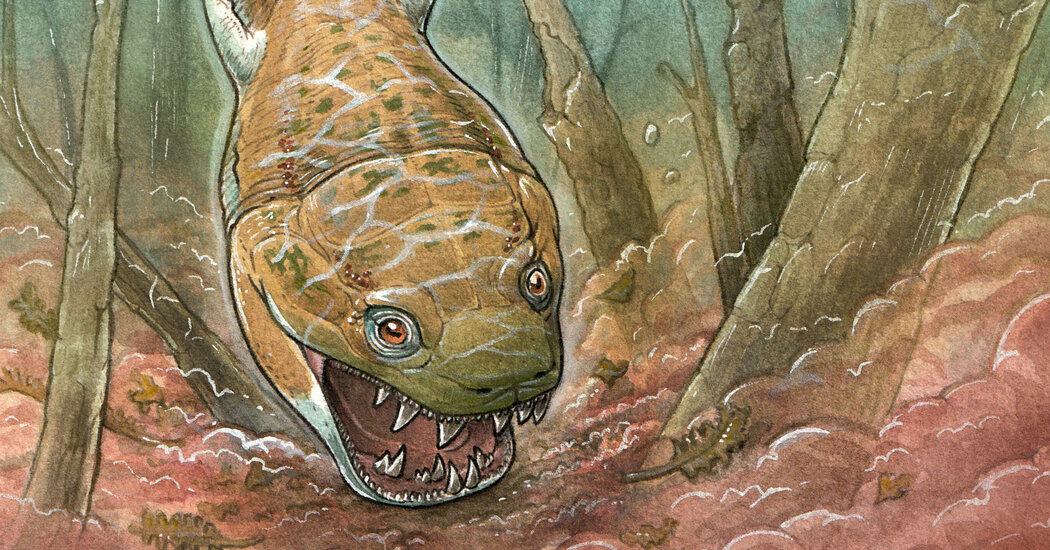A bigheaded predator resembling a giant salamander found in an African fossil deposit suggests unwritten chapters of how animals moved onto land.
Some 280 million years ago, a large predator glided through the chilly waters of a supercontinent in the Southern Hemisphere. The eight-foot-long hunter had tiny limbs, an eel-like body and a flat head full of jutting fangs. And according to existing ideas about vertebrate evolution, it shouldn’t have existed.
“It was displaced in time, displaced regionally and also far too big,” said Claudia Marsicano, a paleontologist at the University of Buenos Aires and an author of a paper describing the animal in the journal Nature on Wednesday. “There were a lot of things that made it unique.”
The giant salamander-like creature, which Dr. Marsicano and her colleagues named Gaiasia jennyae, could only have been a relic of a family thought to have been extinct for millions of years. Their finding might suggest that additional research on the emergence of tetrapods — vertebrates with four limbs and feet instead of fins — is in order.
Spencer Lucas, a paleontologist at the New Mexico Museum of Natural History and Science who was not involved in the study, said that the discovery “is not enough to force a rethink of most of what we think about late Paleozoic tetrapod evolution. But it is a nudge in that direction.”
Dr. Marsicano and her colleagues discovered Gaiasia fossils in 2014 and 2015 during successive expeditions to the brutal deserts of the Huab Basin of northwest Namibia in Southern Africa. They recovered fossils from four animals, including a pair of skulls and a nearly complete skeleton.
Piecing together the specimens, the team says that Gaiasia belonged to a family of bigheaded, swamp-dwelling vertebrates called colosteids. This family had split off from other land animals long before the ancestors of more modern lineages like amphibians, reptiles and mammals evolved.
